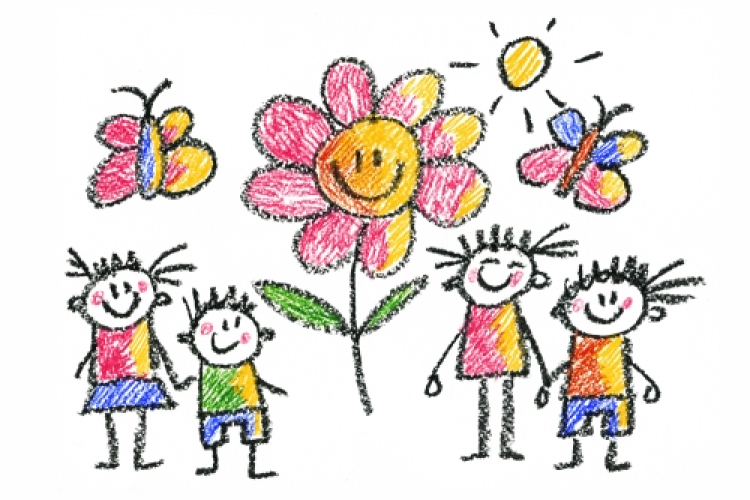Cultivating a Culture of Imagination

Imagination comes to our mind as something to work on and sometimes to work on hard, doesn’t it? I remember when I was a little girl going to school and the Art teacher asked us to draw something, the first step given was: Use your imagination...
The imagination is the picture–making faculty of the mind. It is that part of us that forms images in the mind or heart, especially those not previously perceived in their entirety. Through imagination, we are able to synthesize new ideas and intuitively understand the real. This ability can lead to great creativity.
First, let’s clarify that Imagination is far from fantasy. The key difference is that imagination involves how a person deals with reality (yes, reality), while fantasy is an unrealistic byproduct of that imagination. Another word that is easily confused is creativity. We are not talking about that either. Creativity is different from imagination in that it is a productive result of imagination.
It may sound hard or even impossible to exercise imagination, to put together a mental image from separate elements. Unfortunately, some students (including me when I was little) can see this as a burden: ''Oh no, I need to imagine this or that to create something from scratch!” But the fact is, imagining things happens by simply being in contact with reality. For example, the moment I started thinking about what to write in this article I started imagining myself doing it. There is no way to act before imagining, even though you might think that our minds are programmed for daily tasks.
Think about creation. When I read Genesis 1, I can even feel the smell of ''nothing'' before the things being created by God with His extraordinary mind, imagining those things first. In the six days of creation God placed things with an order that came first from His imagination. He imagined, formed a mental image of each thing and person, then sculptured it in solid form to represent the mental picture He had.
As he thinks in his heart, so he is. Proverbs 23:7 NKJV
We can never say about our actions that we do not know where they came from. A thought or imagination always precedes an action. While it is true that some actions are reflex ones, they still must pass through the mind first.
What is God's intent for our minds/imagination? God has revealed in His word that He desires us to keep our minds focused on Him and His ways:
God has revealed in His word that He desires us to keep our minds focused on Him and His ways:
Thou wilt keep him in perfect peace,
whose mind is stayed on thee:
because he trusteth in thee.
Isaiah 26:3 KJV
And now, dear brothers and sisters, one final thing. Fix your thoughts on what is
true, and honorable, and right, and pure, and lovely, and admirable.
Think about things that are excellent and worthy of praise.
Philippians 4:8 NLT
Set your mind on the things above, not on the things that are on earth.
Colossians 3:2 NASB
and have put on the new self, which is being renewed
in knowledge in the image of its Creator.
Colossians 3:10 NIV
Do not conform to the pattern of this world, but be transformed
by the renewing of your mind. Then you will be able to test and approve
what God’s will is—his good, pleasing and perfect will.
Romans 12:2 NIV
The Evil Side
Yet, though God has shown us His desire for our minds, evil also has an appeal to us and to our imaginations. It captures the thoughts, mind or imagination of God's people and corrupting them from the purity, holiness and peace that is in Him. Once our imaginations are corrupted, they need to be cleansed.
Everything that comes into our minds or imagination can be used either to build us up or to take us toward idolatry. Idolatry always begins in the heart, mind, imagination.
To the pure, all things are pure, but to those who are
corrupted and do not believe, nothing is pure.
In fact, both their minds and consciences are corrupted.
Titus 1:15 NIV
Little children, keep yourselves from idols.
1 John 5:21 ESV
I will do this to recapture the hearts of the people of Israel,
who have all deserted me for their idols.
Ezekiel 14:5 NIV
Our children's imaginations are being captured all the time by something or someone. We have a tremendous responsibility and privilege to be proactive in capturing our children's imagination for lofty, beautiful, holy, glorious things. So, I encourage us to point them above and beyond.
How do we capture children's imagination for God’s glory? Here are some ways that help children develop their “image-making” facility:
Use Symbols
Symbols are so important and help us to remind ourselves that true imagination comes from true things. For example, what does the cross, remind us Christians of? It was a true thing. The cross is an object that points to something especially important that truly happened here on Earth. Do an exercise of thinking about something that reminds you of or points you to the truth. Use symbols in various teaching moments, reveal a gem behind the thing or event, and make the experience real to students.
 Engage with the Living Book
Engage with the Living Book
We as Christian educators can get the best inspiration straight from the Bible, from a true story that happened, and connect it to our own story of transformation. What is your favorite Bible Story? Yes, that one that touched your heart when you first met Jesus?
Read Living Books
A living book is a beautifully written narrative that catches the imagination, invites us to experience what is true, good, and beautiful, and plants within us nourishing ideas that cause us to grow as persons made in the image of God. Find these books that will minister to children and read them to your students.
Foster Embodied Living
Hold up heroes and heroines to students to spark their interest in the content you are teaching and to kindle and fashion their imaginations. We want the minds of the children to come alive, so feed them with living ideas from real persons, real life happening in front of their own eyes.
Imagination is truly a gift from God! I will say it again: It is a gift from God! Can you celebrate it and rejoice with me? God crafted us as human beings with a tremendous capacity to symbolize, to ''see'' if you will, with our hearts far beyond just what our physical eyes can see. Let us humbly receive the gift enjoying that God is pleased with this.
Juliana Santos
Juliana is married to Paulo Santos. They direct a TeachBeyond Language Centre in Brazil - Beyond Inglês. Recently Juliana joined TeachBeyond's School Services Department serving as Home Education Global Coordinator. She is a mother of 4 children and has vast educational experience coordinating, teaching and mentoring Homeschooling families in a co-op setting. Juliana and Paulo were guests on TeachBeyond’s podcast, Transformed & Transformational. You can listen to that episode here.
Photo Credits
Kid’s Drawing. Shutterstock. Resized.
Math Lesson. Shutterstock. Resized.
Bible Reading. Shutterstock. Resized.



